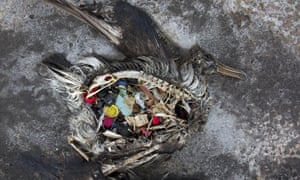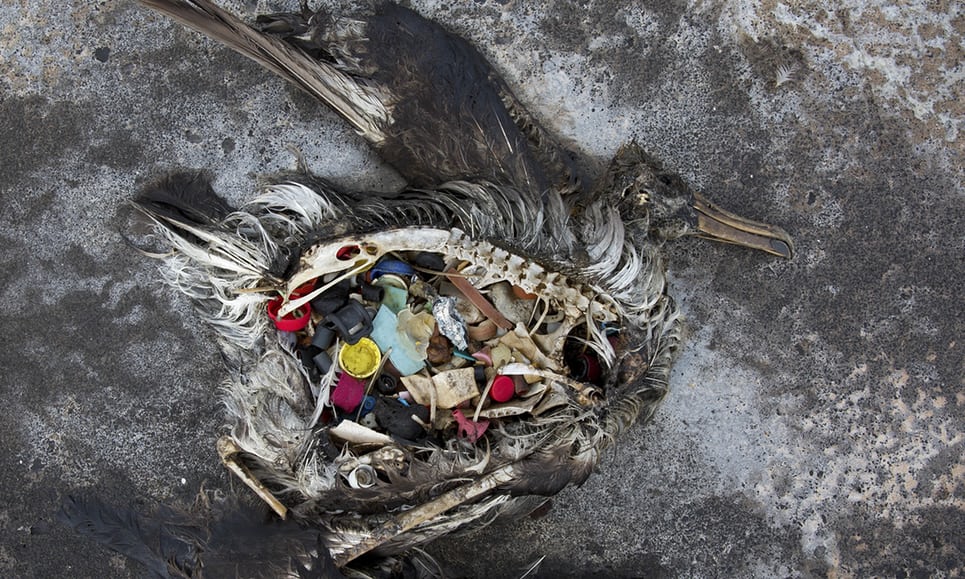Plastic has been and still is a material that we rely on. From institutions on the forefront of robotics to the retail industry shipping products out in plastic packaging, it is always present. However, how many know of the severe impacts the petroleum based material has on the world?
Pollution:
Single use plastic are items meant to be thrown away after their singular purpose has been completed. This includes things like packaging, bottles, bags, straws, and everything in-between. Did you know, only 20% of the world’s plastic is actually recycled (National Geographic, 2018)? That leaves the remaining 80% of the 400 million tonnes estimated to be produced by the world is to rest in landfills or worse, to find their way into nature.

Image credits: Hinduistan Times, 2017. Chinese workers cleaning up waste on Mount Everest’s north face.
Damage to the Ecosystem:
This plastic isn’t slacking either. Once it’s out there it doesn’t just rest. It doesn’t biodegrade. It just breaks apart into hundreds of smaller pieces called “microplastics” which are then mistaken as food by several species of seabirds and marine life. You’ve likely heard that sea turtles often mistake plastic bags as tasty jellyfish. They aren’t the only ones. According to an interview done by National Geographic, these microplastics stay in the ocean for so long that they begin absorbing a natural chemical that makes them smell like fish (National Geographic, 2018)! To be honest, if I was eating a burger and there was a tiny piece of plastic that smelled like the burger, I’m not sure I could say I wouldn’t eat it. Probably.
 Photo credit: The Guardian, 2016.
Photo credit: The Guardian, 2016.
A seabird that died after mistaking too many microplastics as fish.
The plastic they eat fills up their bellies without giving them nutrients, and they subsequently starve to death. It’s not only in the plastics they eat, but microplastics can be found in fish as well. First, maybe a shrimp eats a fragment of a plastic bag. Then a fish. Then a bigger fish. Then a bird. And on and on. Countless metric tonnes of plastics are floating around in our oceans, both in the form of microplastics and as well as in one of the massive garbage patches created by ocean currents. The Great Pacific Garbage Patch is estimated to be nearly 3 times the size of France (https://www.theoceancleanup.com/great-pacific-garbage-patch/).
Leachate:
BPA or Bisphenol A is a chemical that is used in a plethora of plastic manufacturing processes. You’ve likely heard of it before, I remember the news stories that ran here in Edmonton. “Don’t leave your plastic bottles in our car”. Heat can cause the compound to leach from plastics in bottles and the epoxy lining on the beverage cups distributed by some restaurants and get into your drink. A study by Toru Tachibina et al. concluded that BPA may have had an effect in the mortality rates of newborn rats (2007). The Journal of Steroid Biochemistry and Molecular Biology found that the compound can disrupt the hormonal pathways in individuals that consume them. That said, it is fair to say that they concluded that more investigation is required to see the effects on humans. However, I feel like their studies are enough to push me away from plastic bottles.
 Photo credit: Wikipedia
Photo credit: Wikipedia
ehold! The atomic structure of BPA!
There is one thing we need to ask ourselves: is convenience worth the harm that plastic creates?
What can you do to reduce your impact?
While all of these recent findings can be appalling and might make it seem hopeless, there are several small things that you can do to help combat it. Reduce the most prevalent types of single-use plastics that you use!
1. Plastic bottles.
Plastic beverage bottles make up a large chunk of the single use plastics disposed of today. Let’s assume that a person purchases 3 or more beverages a week. That adds up to 12 bottles a month, and 144 bottles a year. A welcome change in my book.
 Lamose can help! Have no fear, our bottle is 100% steel! We are also currently looking for ways to phase out our use of plastics in our packaging as well.
Lamose can help! Have no fear, our bottle is 100% steel! We are also currently looking for ways to phase out our use of plastics in our packaging as well.
2. Straws
Think of all of the restaurants you’ve been to. How many had a plastic straw poking out of the glass? Too many. It would be a simple change: ask your server for “no straw please”. 3 simple words that can add up quickly.
3. Plastic Bags
National Geographic stated that on average, each American uses ~1 plastic bag a day. Now compare that to the 4 per year that Denmark does. Imagine how many sea turtles would be smiling! A simple change would be to bring reusable bags whenever you go shopping. It doesn’t have to be a shopping specific bag, I’ve gotten groceries with backpacks and messenger bags before, and you’ll never see me without one now!
These are a couple simple things to help reduce your plastic footprint, but anything that results in less usage of plastic and more recycling is beneficial to the environment. The responsibility is on all of us to protect our environment and our bodies. #LamoseGo!
Sources:
https://news.nationalgeographic.com/2018/05/plastics-facts-infographics-ocean-pollution/?beta=true
https://www.darrinqualman.com/global-plastics-production/
https://www.theoceancleanup.com/great-pacific-garbage-patch/
https://en.wikipedia.org/wiki/Bisphenol_A



Share:
Quick 30 mins body-weight home work out
Our Life’s Blood: The Importance of Staying Hydrated